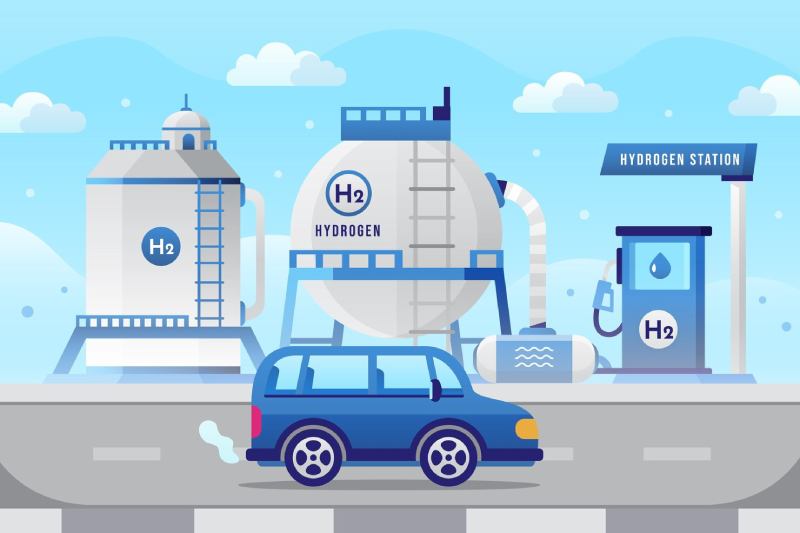Turkey is an emerging market with a rapidly growing energy sector. The country's strategic location between Europe and Asia, its expanding economy, and its increasing population have all contributed to its energy demand growth. Turkey has a diverse energy mix that includes coal, natural gas, hydroelectric power, wind, solar, geothermal, and biomass.
In Turkey, energy demand is expected to increase by 4-6 percent annually until 2023.
Natural gas is the largest source of energy in Turkey, accounting for about 36 percent of the country's total energy consumption. Turkey is heavily dependent on imports to meet its natural gas demand, with Russia and Iran being the primary suppliers. To reduce its dependence on imported natural gas, Turkey has been increasing its domestic production and exploring for new reserves.
Coal is the second-largest energy source in Turkey, accounting for about 24 percent of the country's total energy consumption. Turkey has significant coal reserves, and it has been investing in modernizing its coal-fired power plants to reduce emissions and increase efficiency. Renewable energy sources, such as hydroelectric power, wind, solar, geothermal, and biomass, have been growing in importance in Turkey. The country has set a target of generating 30 percent of its electricity from renewable sources by 2023.
.Green hydrogen is an emerging technology that involves producing hydrogen using renewable energy sources, such as wind or solar power, instead of fossil fuels. Turkey has been actively exploring the potential of green hydrogen to help reduce its dependence on imported energy and to meet its climate change goals.
Turkey has a strong demand for hydrogen, particularly in the transportation sector and industrial processes, such as steel production and fertilizer manufacturing. Currently, most of the hydrogen used in Turkey is produced from natural gas through a process called steam methane reforming (SMR). However, there is growing interest in producing hydrogen from renewable energy sources, such as solar and wind power, through the process of electrolysis.
In March 2021, Turkey announced its National Energy and Mining Policy, which includes a target of producing 10% of its hydrogen from renewable sources by 2030. This target is expected to be achieved through the development of green hydrogen projects, such as the construction of electrolysis plants and the installation of renewable energy infrastructure. The country also aims to increase its installed renewable energy capacity to 50 GW by 2023 and 60 GW by 2025, which would help to support the production of green hydrogen.
To support the growth of the hydrogen market, Turkey has recently launched a national hydrogen strategy that aims to increase the production, storage, and usage of hydrogen in the country. The strategy includes a target of producing 1.5 million tons of hydrogen per year by 2030, with a significant portion of the hydrogen to be produced from renewable energy sources. The country also aims to install 2GW of electrolysers by 2030 and 5GW by 2035, rising to 70GW in 2053. The policy captures the following -
A legislative framework for regulating the licensing, production, transmission and distribution of hydrogen is yet to be established in Turkey. Legislation that could apply to hydrogen includes the Natural Gas Market Law (Law No. 4646), the LPG Market Law (Law No. 5307) or the Law on Use of Renewable Energy Resources for the purpose of Generating Electricity Energy (Law No. 5346).
However, none of these instruments specifically refer to hydrogen or provide a clear categorization that would clearly cover hydrogen. Turkish authorities, in cooperation with international bodies, universities, research institutions and private companies, have been taking promising steps on promoting hydrogen, while also introducing some 'piecemeal' legislation that could pave the way for more widespread hydrogen use in the future.
In order to set the groundwork for promoting the use of hydrogen in transportation, the Ministry of Industry and Technology of Turkey has introduced mirroring regulations adopted from the EU with respect to the technical quality standards applicable to hydrogen-powered vehicles and the use of mixed fuels, in an effort to allow the anticipated trade and traffic of hydrogen-powered vehicles to be virtually similar in both jurisdictions.
Further, the Regulation on Increasing Efficiency and Use of Energy Resources published by MENR on 27 October 2011 sets out that state institutions carrying out or supporting research and development projects connected with the use of hydrogen must prioritize economically viable projects concerning hydrogen production technologies based on renewable energy sources (such as hydro, wind, solar and geothermal energy). The Ministry of Transport published the Regulation on Rules and Procedures Regarding Increasing Energy Efficiency in Transportation, which lists hydrogen amongst the clean energy resources to be promoted by the Ministry of Transport in its projects as an alternative to fossil fuel.

Turkey is well-positioned to become a major producer of green hydrogen, due to its abundant solar and wind resources, as well as its strategic location between Europe and Asia. The country has already taken some steps to promote the development of green hydrogen, including signing a memorandum of understanding with Germany to cooperate on the production and use of hydrogen, and launching a Green Hydrogen Roadmap to guide the country’s efforts.
Turkey has made significant efforts to develop its green hydrogen infrastructure and promote the use of green hydrogen in various sectors. Here are some of the notable initiatives and projects:
Not Available
The hydrogen projects that are currently being developed in Turkey: